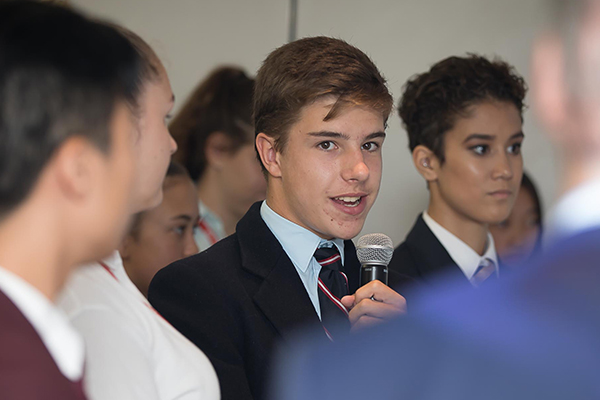by
User Not Found
| Jul 31, 2019
Dr Genevieve Hall, Education Consultant Asia Education Foundation

Much research has been conducted around how students can learn to become active and informed global citizens through formal lessons at school (Tibbitts, 2002; Osler & Starkey, 1996).
However, having conducted case study research about extracurricular student forums, findings demonstrated that powerful and transformative learning can occur through extracurricular activities outside of the formal classroom. These need to be recognized and valued by educators (Hall, 2014).
The students in my research were given the opportunity to have some control over what and how they learned in ways which crossed subject curriculum boundaries.
Enabling students to participate in learning that was meaningful to them because they were interested in global issues.
Students also had an internal motivation to learn because they had a stake in the outcome without the pressure of assessment.
Indeed in 2018, the Victorian Department of Education and Training released a policy for consultation entitled ‘Amplify: Empowering students through voice, agency and leadership’ as part of the Framework for Improving Student Outcomes (FISO) which states that students should have the power and capacity to be involved in deciding what and how they learn.
Such an approach cannot occur solely by teachers adding it as a topic within classroom teaching and learning activities; rather such approaches need to be implemented through all aspects of school life.
The Importance of role-play
Despite the finding that the students in my study enjoyed having autonomy over what they learnt through the student forums and the development of peer networking, the guidance and resources provided by the teacher once they were back in the classroom gave students a focus and direction which enabled transformative learning to take place.
Students identified examples of personal transformative learning which occurred in terms of their knowledge, understandings, skills and attitudes about global issues. There was also evidence of increased understanding amongst the students of the practical and institutional barriers to undertaking meaningful action in a diverse and complex world.
For 21st century learners, negotiating personally transformative learner outcomes has implications for schools, whose mission is to develop internationally minded global citizens who understand their rights and responsibilities in local, national and global contexts. The Global Goals Forum provides an opportunity for students to negotiate the focus of curriculum around contemporary issues which are pertinent to their lives.
On Thursday 29th August 2019, the Asia Education Foundation will be conducting a Global Goals Youth Forum to deepen secondary school students’ understanding of the Sustainable Development Goal (SDG) of Peace and Justice (Goal 16). This forum will involve teams of students from across a range of schools acting together to represent the views of different countries in Asia about issues such as birth registration, child labour and child refugees. The Global Goals Youth Forums provide students with a challenging and authentic way to learn about global issues, as well as a framework to develop their intercultural understanding using a design thinking framework.
Intercultural understanding is a key priority of the Asia Education Foundation. To learn how to lead change in your school, please contact Dr Hall on g.hall@asialink.unimelb.edu.au.
Learn how you can get involved with our upcoming Go Global Student Programs.
About the author
AEF Education Consultant, Dr Genevieve Hall, recently completed her PhD on why young people become human rights activists. Dr Hall also holds a Masters from Monash University which focused on how transformative learning can occur through student participation in extracurricular activities.
For more information, please contact Dr Hall on g.hall@asialink.unimelb.edu.au.
Views are held by the author.
References
Hall, G. (2014). Human Rights Education: Transformative learning through student participation in extracurricular activities. The Social Educator, 32(2), 26-33.
Osler, A., & Starkey, H. (1996). Teacher education and human rights. London: D. Fulton Publishers
Tibbitts,F. (2002). Understanding what we do: Emerging models for human rights education. International Review of Education, 48(3-4),159-171
Comment